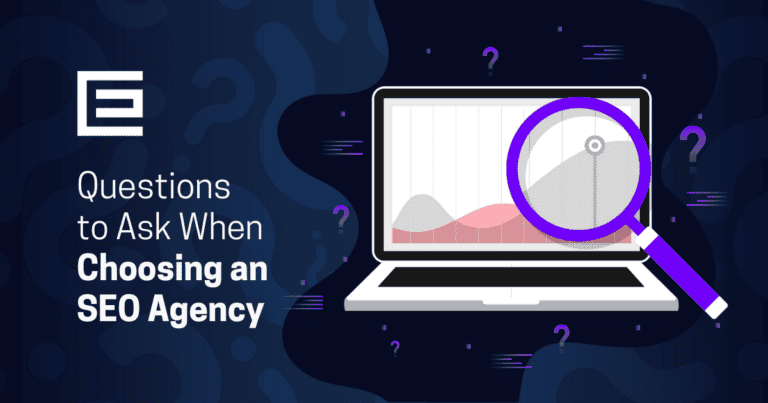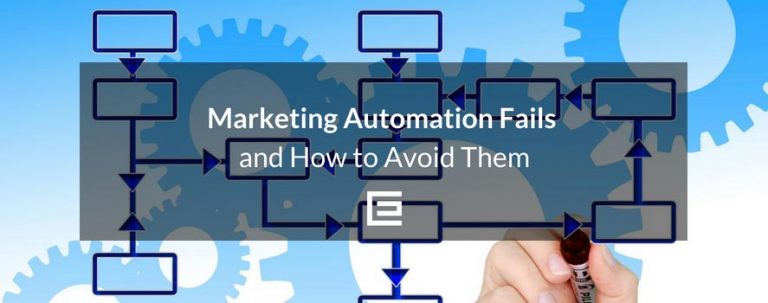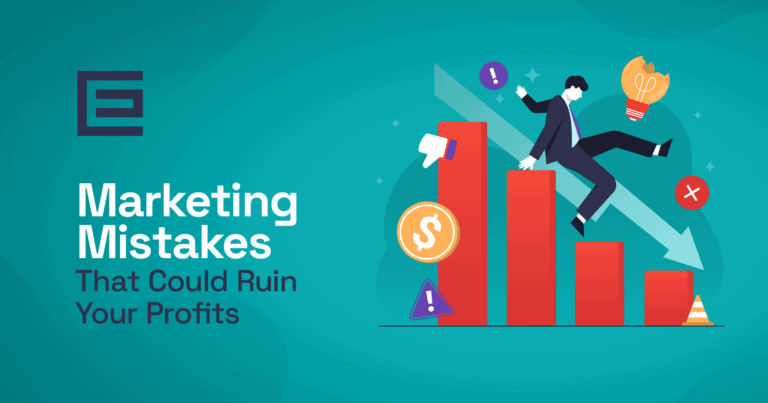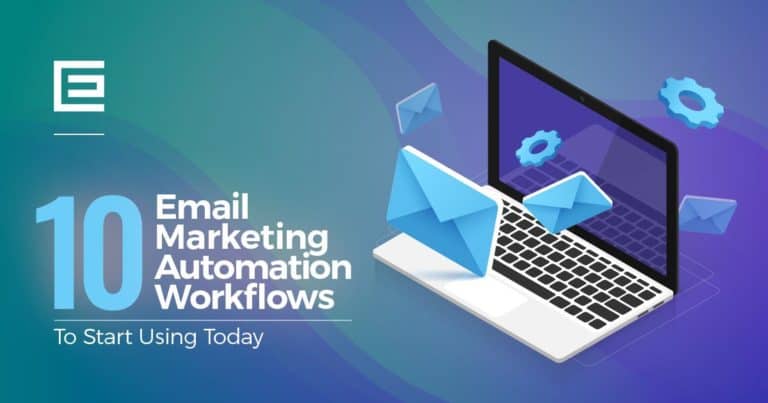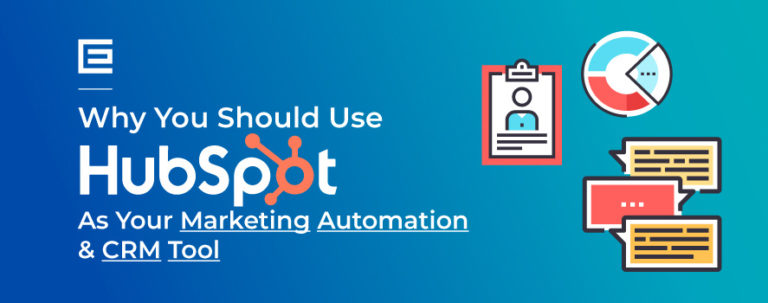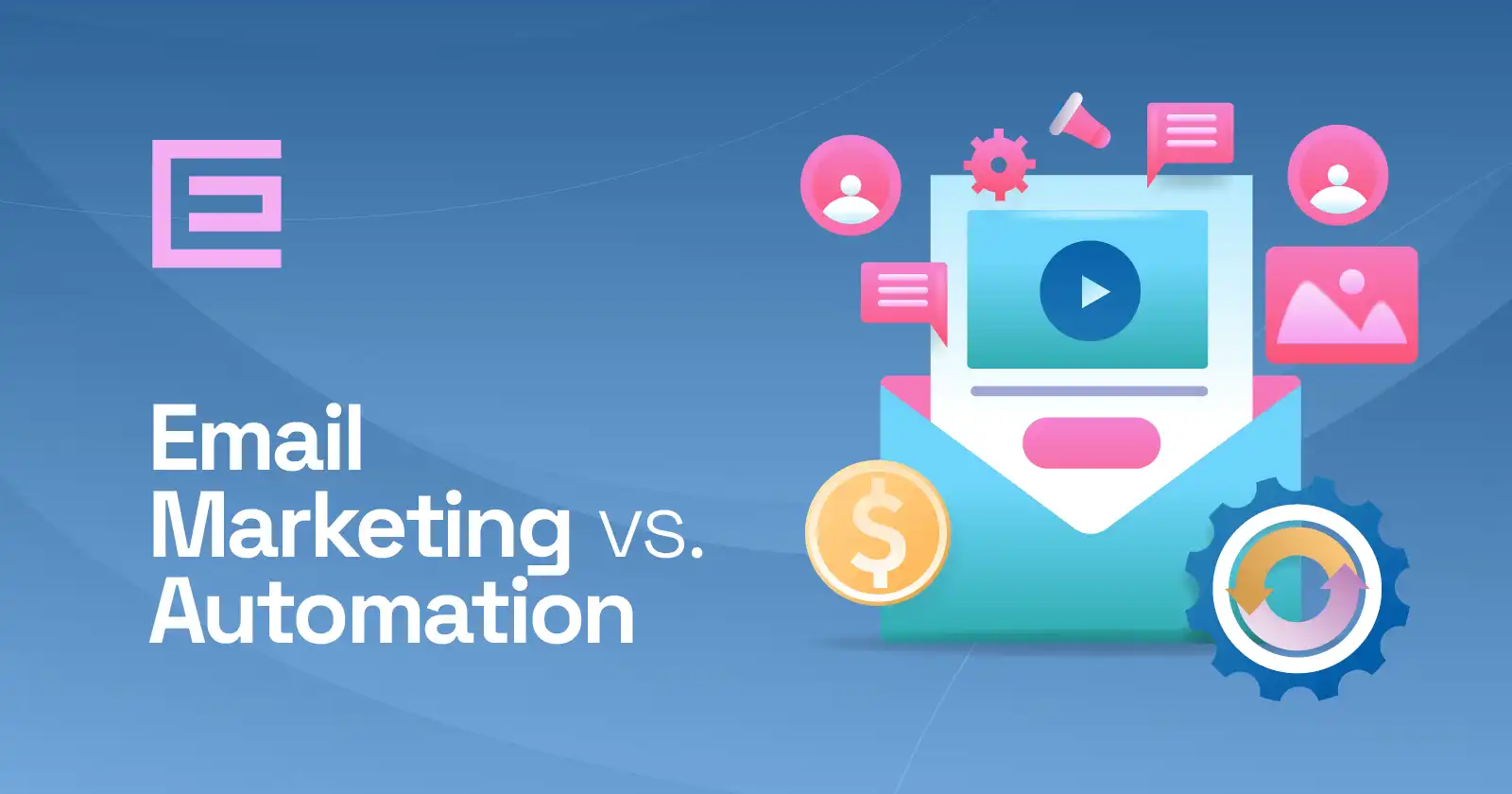
Marketing Automation vs Email Marketing
Effective marketing isn’t just a choice—it’s a necessity for businesses aiming to thrive in their market. For these organizations, harnessing the power of marketing automation isn’t just a smart move; it’s essential for optimizing outreach, nurturing relationships, and maximizing impact.
Email marketing involves sending emails directly to customers or leads, making it a straightforward and cost-effective way to communicate messages. On the other hand, marketing automation utilizes specialized software to automate marketing tasks and deliver personalized content based on customer behavior and preferences. This approach enhances efficiency and allows businesses to create more personalized and effective marketing campaigns.
Join our digital marketing experts from TheeDigital as we explore the pivotal question: which is better suited to your needs—traditional email marketing or the dynamic capabilities of marketing automation? Let’s look closer at the key distinctions between these two marketing approaches to help you choose which aligns best with your strategic goals.
What is Email Marketing?
Email marketing involves the use of email to promote products or services, build relationships with customers, and generate leads or sales. It is a direct and targeted form of digital marketing that allows businesses to reach their audience effectively through their inbox.Types of Email Marketing
There are several types of email marketing campaigns designed to achieve specific objectives:
- Newsletters are a common type, providing subscribers with regular updates, industry news, and company announcements.
- Promotional campaigns focus on showcasing discounts, special offers, or seasonal promotions to encourage purchases.
- Product updates keep customers informed about new features, upgrades, or releases related to products they’ve shown interest in.
- Email marketing can also include event invitations or customer surveys for feedback.
Each approach to email marketing leverages the principles of permission-based lists, compelling content creation, and strategic scheduling to optimize engagement and enhance customer loyalty.
Key Benefits of Email Marketing
Email marketing offers businesses a direct and powerful way to engage with their audience through email campaigns, offering the following benefits:
- Direct Communication: Reach customers directly in their inbox, where they are likely to engage with content.
- Cost-Effectiveness: Compared to traditional marketing channels, email marketing offers a high return on investment (ROI).
- Measurable Results: Track metrics such as open rates, click-through rates, and conversion rates to gauge campaign effectiveness.
- Personalization: Tailor messages based on subscriber preferences and behaviors to enhance relevance and engagement.
What is Marketing Automation?
Marketing automation allows you to do everything an email marketing platform can do, and much, much more. Marketing automation offers comprehensive tools to streamline and optimize marketing efforts. Large enterprises require a more sophisticated approach to lead generation, customer acquisition, and list management. These are things that basic email platforms can’t provide. Small and medium-sized businesses with aggressive growth strategies can benefit from implementing software to automate repetitive tasks and workflows.A full-scale automation solution, such as HubSpot Inbound Marketing, brings in leads through marketing automation. This sophisticated marketing approach is essential for businesses aiming for substantial growth.
Examples of Marketing Automation
Marketing automation platforms like HubSpot Inbound Marketing enable businesses to:
- Automate lead generation and nurturing processes.
- Segment audiences based on behavior, demographics, or interactions.
- Personalize communication through dynamic content and triggered responses.
- Analyze campaign performance and customer behavior to refine strategies.
Key Benefits of Marketing Automation
Marketing automation empowers businesses to create targeted, efficient campaigns that drive engagement, conversions, and long-term customer relationships while offering these advantages:
- Increased Efficiency: Automate repetitive tasks, saving time and resources.
- Enhanced Personalization: Deliver tailored messages based on customer behavior and preferences.
- Scalability: Manage large-scale campaigns and nurture leads effectively.
- Improved ROI: Optimize marketing efforts with data-driven insights and analytics.
Lead Tracking and Lead Scoring
Many businesses find that less than 1% of their website visitors complete desired actions, such as making a purchase, submitting a contact form, or calling. This leaves a significant portion—about 99%—of visitors whose interactions with the brand remain unclear. Are there missed opportunities among these leads?
While Google Analytics provides valuable insights into website traffic sources and performance metrics like top-performing landing pages, it falls short in identifying and qualifying potential leads effectively. It offers broad insights rather than pinpointing hot leads or filtering out irrelevant traffic. Essentially, while Google Analytics informs you about existing website visitors, it doesn’t actively generate leads or help you engage directly with the untapped potential within that 99%.
Marketing Automation Tracks Individual Leads
Imagine having the ability to track a user’s interactions the moment they engage with an email, and automatically receive alerts about your most promising leads. Marketing automation platforms, such as HubSpot, excel in this capability by identifying individual users and monitoring their behaviors in real time. After all, your products and services are tailored for people, not statistical trends.
Without marketing automation, you might miss out on recognizing qualified prospects who show interest but haven’t converted yet. These leads could be among those driving up your advertising costs by clicking through PPC ads without taking the next step. Automation tools empower businesses to proactively identify, target, and nurture these potentially lost opportunities, ensuring more effective lead management and conversion strategies.
Marketing Automation Defines Lead Scoring Categories
Once you’ve linked an email address and other important information with the formerly anonymous user’s session behavior data, you’re able to start lead scoring.
For example, an effective lead scoring matrix for a service-based company would help group leads into categories like:
- Job Seekers
- Competitors
- Unqualified Leads
- Qualified Prospects for Nurture
- Hot Qualified Prospects
Marketing Automation Scores Leads by User Behavior
Lead scoring often combines user behavior with gathered information to assess lead quality effectively.
Here’s some examples of how lead scoring can be utilized through marketing automation:
- Job Seeker: Visited careers page and viewed a job posting.
- Competitor: Email address is from a competitor.
- Unqualified: Company is located in Vanuatu, but your services are limited to USA-based companies.
- Qualified Prospects – Nurture: Visited a service page indicating initial interest.
- Qualified Prospects – Hot: Visited multiple service pages, the pricing page, and the contact page, showing strong intent and readiness for engagement.
Drip Campaigns for Automated Marketing
Drip campaigns are a cornerstone of marketing automation strategies, designed to nurture leads and guide them through the customer journey with personalized, timely content. These campaigns automate the process of sending a series of pre-written messages to prospects or customers over a specified period.
The possibilities on how to utilize this feature are only limited by your imagination. The huge advantage of drip email marketing campaigns is that you can set up custom rules to automate your workflow. After you set these automated programs up once, they run automatically and are more diligent and relentless than any human sales or marketing rep could ever be.
Hot Lead Alert Program
The simplest example of an automated program is a hot lead alert program, which focuses on your most promising leads. Marketing automation pays for itself if you set up this type of program.
When a user is scored in the “Qualified Prospects – Hot” category, the program will send an email and a CRM alert to the designated salesperson. That salesperson will then log into the automation platform to review the history of interactions that this user has had with your online presence, enabling the sales rep to effectively nurture the lead.
Event Drip Campaign
When trying to target users in the “Qualified Prospects – Nurture” category to sign up and attend a webinar, an automated program can be set up to invite people three times (or however many you deem necessary) with well-timed, well-crafted emails. Additionally, a function of this program is the capability to stop sending to users who have completed the signup for your virtual event.
Once a user signs up, the automated program sends them reminders to attend the upcoming web event. After the webinar is over, the automation will reach out to users again, sending everyone who attended the online event a follow-up message. This post-event email can thank them for attending, provide a link to the on-demand version, and promote them to further interact with your brand.
Shopping Cart Abandon Email
It often happens that a user will add a product to their online shopping cart and then not complete the purchase. This is referred to as shopping cart abandonment (SCA), and is a must-use marketing automation feature for any ecommerce website.
With the power of marketing automation, you can “automagically” capture lost revenue from cart abandoners. If a user puts an item in their cart and then leaves the website, a customized email is triggered to encourage them to complete their checkout.
Roughly three in four users don’t finish their online purchase, even after adding an item to their cart, so it is vital to guide their buying decision by setting up your SCA program with special offers or coupon codes. Data shows that the number one cause of cart abandonment is unexpectedly high shipping costs, so by offering free shipping or discounted shipping through this automated service, you may secure the final sale.
Marketing Automation and Revenue Attribution
Ever wonder which marketing programs are bringing in the most return on investment (ROI) for your organization? It’s never an easy question to answer, but with marketing automation, you can get a lot closer to the holy grail you seek. In reality, it’s usually not just one touchpoint that causes a prospect to become a customer or client, it’s several.
Organizing and Measuring Campaign Attribution
Automation platforms excel in organizing, executing, and measuring the attribution weight of each component of your marketing campaigns. For instance, if a user discovers your website through a Google search and engages with a blog post before attending a recorded webinar and ultimately contacting your sales team, each touchpoint deserves recognition. Marketing automation platforms like HubSpot facilitate this by attributing revenue across various touchpoints. This provides clarity on the impact of each marketing effort.
Reporting and Insights
By summarizing this information in regular reports, marketing automation platforms offer insights into the effectiveness of different campaign elements. These reports help in understanding which marketing channels and strategies are driving the highest ROI, enabling informed decision-making for future campaigns and resource allocation.
Understanding Lead Activity and Conversion Paths
Analyzing each new lead’s activity timeline provides a comprehensive understanding of the combination of factors that contributed to their conversion into a client or customer. This detailed insight helps in refining marketing strategies, optimizing lead nurturing processes, and enhancing overall conversion rates.
Like with most tools, the effectiveness of marketing automation hinges on its implementation. Many businesses underestimate its potential by using it as they would a basic email marketing platform. However, with the right strategy and expertise, marketing automation can significantly enhance your ability to track ROI, optimize campaigns, and maximize revenue generation.
Choosing the Right Marketing Strategy for Your Business
Choosing the right marketing strategy for your business can be pivotal in driving growth, enhancing customer engagement, and maximizing return on investment (ROI).
At TheeDigital, we specialize in leveraging advanced marketing solutions powered by HubSpot to help businesses of all sizes achieve their marketing goals effectively. HubSpot is renowned for its robust capabilities in automated marketing and email campaigns, making it an ideal choice for businesses looking to streamline marketing operations and boost efficiency.
Here’s how HubSpot can benefit your business:
- Automation Excellence: HubSpot’s automation tools empower businesses to automate repetitive tasks, personalize customer interactions, and nurture leads effectively through tailored workflows and automated email sequences.
- Advanced Email Marketing: With HubSpot, you can create and send personalized emails at scale, leveraging data-driven insights to optimize engagement and conversion rates. Its intuitive interface and comprehensive analytics provide actionable insights to refine email strategies over time.
- Campaign Tracking and ROI Measurement: HubSpot’s reporting tools allow you to track campaign performance, measure ROI, and attribute revenue across various touchpoints. This visibility helps in identifying high-performing strategies and allocating resources effectively.
TheeDigital’s Expertise in HubSpot Marketing Solutions
At TheeDigital, we are committed to maximizing the potential of HubSpot’s marketing automation platform to drive measurable results for our clients. Whether you’re looking to launch targeted drip campaigns, implement lead-scoring strategies, or optimize your email marketing efforts, our team of marketing specialists ensures a tailored approach that aligns with your business objectives.Email marketing offers businesses a direct and powerful way to engage with their audience through email campaigns, offering the following benefits:
- Direct Communication: Reach customers directly in their inbox, where they are likely to engage with content.
- Cost-Effectiveness: Compared to traditional marketing channels, email marketing offers a high return on investment (ROI).
- Measurable Results: Track metrics such as open rates, click-through rates, and conversion rates to gauge campaign effectiveness.
- Personalization: Tailor messages based on subscriber preferences and behaviors to enhance relevance and engagement.
What is Marketing Automation?
Marketing automation allows you to do everything an email marketing platform can do, and much, much more. Marketing automation offers comprehensive tools to streamline and optimize marketing efforts. Large enterprises require a more sophisticated approach to lead generation, customer acquisition, and list management. These are things that basic email platforms can’t provide. Small and medium-sized businesses with aggressive growth strategies can benefit from implementing software to automate repetitive tasks and workflows.
A full-scale automation solution, such as HubSpot Inbound Marketing, brings in leads through marketing automation. This sophisticated marketing approach is essential for businesses aiming for substantial growth.
Examples of Marketing Automation
Marketing automation platforms like HubSpot Inbound Marketing enable businesses to:
- Automate lead generation and nurturing processes.
- Segment audiences based on behavior, demographics, or interactions.
- Personalize communication through dynamic content and triggered responses.
- Analyze campaign performance and customer behavior to refine strategies.
Key Benefits of Marketing Automation
Marketing automation empowers businesses to create targeted, efficient campaigns that drive engagement, conversions, and long-term customer relationships while offering these advantages:
- Increased Efficiency: Automate repetitive tasks, saving time and resources.
- Enhanced Personalization: Deliver tailored messages based on customer behavior and preferences.
- Scalability: Manage large-scale campaigns and nurture leads effectively.
- Improved ROI: Optimize marketing efforts with data-driven insights and analytics.
Lead Tracking and Lead Scoring
Many businesses find that less than 1% of their website visitors complete desired actions, such as making a purchase, submitting a contact form, or calling. This leaves a significant portion—about 99%—of visitors whose interactions with the brand remain unclear. Are there missed opportunities among these leads?
While Google Analytics provides valuable insights into website traffic sources and performance metrics like top-performing landing pages, it falls short in identifying and qualifying potential leads effectively. It offers broad insights rather than pinpointing hot leads or filtering out irrelevant traffic. Essentially, while Google Analytics informs you about existing website visitors, it doesn’t actively generate leads or help you engage directly with the untapped potential within that 99%.
Marketing Automation Tracks Individual Leads
Imagine having the ability to track a user’s interactions the moment they engage with an email, and automatically receive alerts about your most promising leads. Marketing automation platforms, such as HubSpot, excel in this capability by identifying individual users and monitoring their behaviors in real time. After all, your products and services are tailored for people, not statistical trends.
Without marketing automation, you might miss out on recognizing qualified prospects who show interest but haven’t converted yet. These leads could be among those driving up your advertising costs by clicking through PPC ads without taking the next step. Automation tools empower businesses to proactively identify, target, and nurture these potentially lost opportunities, ensuring more effective lead management and conversion strategies.
Marketing Automation Defines Lead Scoring Categories
Once you’ve linked an email address and other important information with the formerly anonymous user’s session behavior data, you’re able to start lead scoring.
For example, an effective lead scoring matrix for a service-based company would help group leads into categories like:
- Job Seekers
- Competitors
- Unqualified Leads
- Qualified Prospects for Nurture
- Hot Qualified Prospects
Marketing Automation Scores Leads by User Behavior
Lead scoring often combines user behavior with gathered information to assess lead quality effectively.
Here’s some examples of how lead scoring can be utilized through marketing automation:
- Job Seeker: Visited careers page and viewed a job posting.
- Competitor: Email address is from a competitor.
- Unqualified: Company is located in Vanuatu, but your services are limited to USA-based companies.
- Qualified Prospects – Nurture: Visited a service page indicating initial interest.
- Qualified Prospects – Hot: Visited multiple service pages, the pricing page, and the contact page, showing strong intent and readiness for engagement.
Drip Campaigns for Automated Marketing
Drip campaigns are a cornerstone of marketing automation strategies, designed to nurture leads and guide them through the customer journey with personalized, timely content. These campaigns automate the process of sending a series of pre-written messages to prospects or customers over a specified period.
The possibilities on how to utilize this feature are only limited by your imagination. The huge advantage of drip email marketing campaigns is that you can set up custom rules to automate your workflow. After you set these automated programs up once, they run automatically and are more diligent and relentless than any human sales or marketing rep could ever be.
Hot Lead Alert Program
The simplest example of an automated program is a hot lead alert program, which focuses on your most promising leads. Marketing automation pays for itself if you set up this type of program.
When a user is scored in the “Qualified Prospects – Hot” category, the program will send an email and a CRM alert to the designated salesperson. That salesperson will then log into the automation platform to review the history of interactions that this user has had with your online presence, enabling the sales rep to effectively nurture the lead.
Event Drip Campaign
When trying to target users in the “Qualified Prospects – Nurture” category to sign up and attend a webinar, an automated program can be set up to invite people three times (or however many you deem necessary) with well-timed, well-crafted emails. Additionally, a function of this program is the capability to stop sending to users who have completed the signup for your virtual event.
Once a user signs up, the automated program sends them reminders to attend the upcoming web event. After the webinar is over, the automation will reach out to users again, sending everyone who attended the online event a follow-up message. This post-event email can thank them for attending, provide a link to the on-demand version, and promote them to further interact with your brand.
Shopping Cart Abandon Email
It often happens that a user will add a product to their online shopping cart and then not complete the purchase. This is referred to as shopping cart abandonment (SCA), and is a must-use marketing automation feature for any ecommerce website.
With the power of marketing automation, you can “automagically” capture lost revenue from cart abandoners. If a user puts an item in their cart and then leaves the website, a customized email is triggered to encourage them to complete their checkout.
Roughly three in four users don’t finish their online purchase, even after adding an item to their cart, so it is vital to guide their buying decision by setting up your SCA program with special offers or coupon codes. Data shows that the number one cause of cart abandonment is unexpectedly high shipping costs, so by offering free shipping or discounted shipping through this automated service, you may secure the final sale.
Marketing Automation and Revenue Attribution
Ever wonder which marketing programs are bringing in the most return on investment (ROI) for your organization? It’s never an easy question to answer, but with marketing automation, you can get a lot closer to the holy grail you seek. In reality, it’s usually not just one touchpoint that causes a prospect to become a customer or client, it’s several.
Organizing and Measuring Campaign Attribution
Automation platforms excel in organizing, executing, and measuring the attribution weight of each component of your marketing campaigns. For instance, if a user discovers your website through a Google search and engages with a blog post before attending a recorded webinar and ultimately contacting your sales team, each touchpoint deserves recognition. Marketing automation platforms like HubSpot facilitate this by attributing revenue across various touchpoints. This provides clarity on the impact of each marketing effort.
Reporting and Insights
By summarizing this information in regular reports, marketing automation platforms offer insights into the effectiveness of different campaign elements. These reports help in understanding which marketing channels and strategies are driving the highest ROI, enabling informed decision-making for future campaigns and resource allocation.
Understanding Lead Activity and Conversion Paths
Analyzing each new lead’s activity timeline provides a comprehensive understanding of the combination of factors that contributed to their conversion into a client or customer. This detailed insight helps in refining marketing strategies, optimizing lead nurturing processes, and enhancing overall conversion rates.
Like with most tools, the effectiveness of marketing automation hinges on its implementation. Many businesses underestimate its potential by using it as they would a basic email marketing platform. However, with the right strategy and expertise, marketing automation can significantly enhance your ability to track ROI, optimize campaigns, and maximize revenue generation.
Choosing the Right Marketing Strategy for Your Business
Choosing the right marketing strategy for your business can be pivotal in driving growth, enhancing customer engagement, and maximizing return on investment (ROI).
At TheeDigital, we specialize in leveraging advanced marketing solutions powered by HubSpot to help businesses of all sizes achieve their marketing goals effectively. HubSpot is renowned for its robust capabilities in automated marketing and email campaigns, making it an ideal choice for businesses looking to streamline marketing operations and boost efficiency.
Here’s how HubSpot can benefit your business:
- Automation Excellence: HubSpot’s automation tools empower businesses to automate repetitive tasks, personalize customer interactions, and nurture leads effectively through tailored workflows and automated email sequences.
- Advanced Email Marketing: With HubSpot, you can create and send personalized emails at scale, leveraging data-driven insights to optimize engagement and conversion rates. Its intuitive interface and comprehensive analytics provide actionable insights to refine email strategies over time.
- Campaign Tracking and ROI Measurement: HubSpot’s reporting tools allow you to track campaign performance, measure ROI, and attribute revenue across various touchpoints. This visibility helps in identifying high-performing strategies and allocating resources effectively.
TheeDigital’s Expertise in HubSpot Marketing Solutions
At TheeDigital, we are committed to maximizing the potential of HubSpot’s marketing automation platform to drive measurable results for our clients. Whether you’re looking to launch targeted drip campaigns, implement lead-scoring strategies, or optimize your email marketing efforts, our team of marketing specialists ensures a tailored approach that aligns with your business objectives.n.
Contact Our Digital Marketing Experts for Automated Solutions Today
Ready to take your marketing efforts to the next level with HubSpot? Contact TheeDigital today to learn how our expertise in automated marketing and email campaigns can transform your business. From strategy development to implementation and ongoing optimization, we’re here to help you succeed. Contact us today at 919-341-8901 or by messaging our digital experts today.
Tags: Digital Marketing • Email Marketing • Marketing Automation • Questions & Answers • Strategy & Consulting

